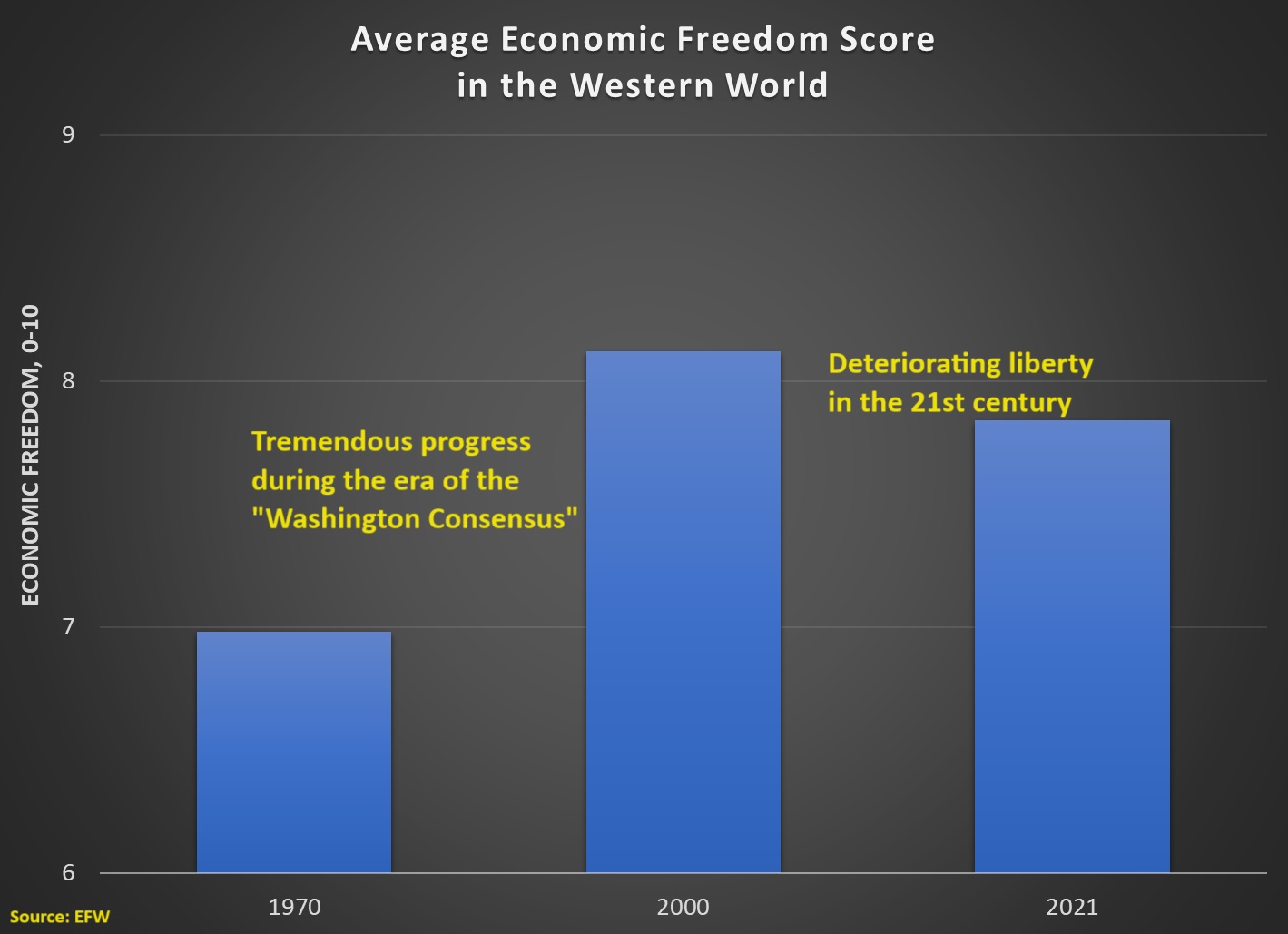Three years ago, I wrote about the erosion of economic liberty in Western Europe (specifically, the 15 nations that comprised the European Union between 1995-2004).
Sadly, here’s a more up-to-date chart showing that the loss of economic freedom is a problem for the entire western world (the advanced nations of North America, Western Europe, and the Pacific Rim).
As you can see, a big increase in economic liberty during the era of the “Washington Consensus” followed by a decline since the turn of the century.
Sadly, only three nations – Israel, South Korea, and Taiwan – improved their economic freedom scores between 2000 and 2021. Every other country declined.
Moreover, it pains me to acknowledge that the United States suffered the biggest decline, dropping from 8.84 to 8.14.
The situation has become so bad that even the New York Times has noticed. Here are some excerpts from a story by Patricia Cohen.
More than 2,500 industrial policies were introduced last year, roughly three times the number in 2019, according to a new study. And most were imposed by the richest, most advanced economies — many of which could previously be counted on to criticize such tactics. …the trend is worrying some international leaders and economists who warn that such top-down economic interventions could end up slowing worldwide growth. …“There are different ways of shooting yourself in the foot,” M. Ayhan Kose, the deputy chief economist of the World Bank, said about the trend of rich countries pursuing industrial policies. “This is one way of doing it.” …The current wave of policies…is a stark contrast to the classic open markets, hands-off government ideology championed by the citadels of capitalism in recent decades. …After years of complaints about China’s subsidies of private and state-owned industries, the United States and Europe have increasingly copied Beijing’s playbook, undertaking multibillion-dollar industrial policies.
The article focuses solely on industrial policy and protectionism.
And those are awful policies. to be sure.
But there are other problems as well, such as a rising fiscal burden of government and inflationary monetary policy.
It’s rather strange that those mistakes were not mentioned. Or, perhaps not so strange since the reporter was talking to people at the annual meeting of the International Monetary Fund and World Bank. And the IMF this century has been controlled by political types who preach a dirigiste message of bigger government and higher taxes.
That’s presumably distressing to the many competent economists who work there.
I’ll close by citing an additional passage that is very discordant.
…faith in the superiority of free-market policies was deeply shaken in recent years by a string of global jolts — the pandemic, supply chain meltdowns, soaring inflation and interest rates, Russia’s invasion of Ukraine, and rising tensions between the United States and China.
Why on earth did the reporter assert that faith in free enterprise was shaken by things that have nothing to do with capitalism?!?
Free markets didn’t impose economic lockdowns. Free markets didn’t cause inflation. Or geopolitical conflicts.
May as well blame capitalism for rainy days and red lights. Sigh.

No comments:
Post a Comment